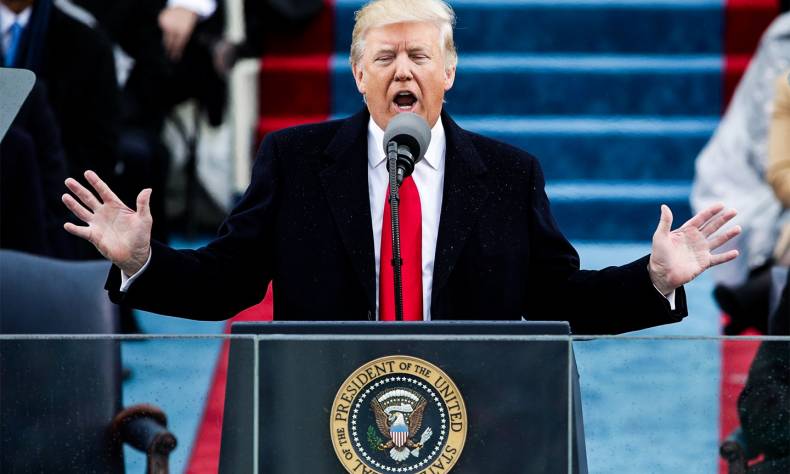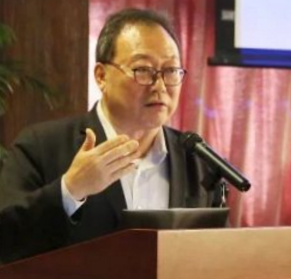
China is Forced to Counter US-Initiated Trade War
The USTR published on Friday a list of Chinese goods subject to additional Tariffs. The “punitive tariffs” on about $50 billion of Chinese products will burden the world’s two largest economies, China and US.
The USTR published on Friday a list of Chinese goods subject to additional Tariffs. The “punitive tariffs” on about $50 billion of Chinese products will burden the world’s two largest economies, China and US.
The trade friction between China and US has been going on for almost three months after US President Donald Trump signed a presidential memorandum on March 22 authorizing USTR to impose tariffs on $ 50 billion of imports from China. Though the two sides decided to stop the potential trade war as Chinese Vice Premier Liu He visited US for trade talks on May 15-20, both side agreed to make changes in order to have a low-cost, optimal win-win outcome of the consultations.
President Donald Trump, however, is anything but predictable, he changed his mind several times on Twitter about the ZTE cooperation’s development in America. So no one is really surprised when the White House issued a statement on May 29, that the United States will implement specific investment restrictions and enhanced export controls for Chinese persons and entities related to the acquisition of industrially significant technology. The list of restrictions and controls will be announced by June 30, 2018. The statement also said, according to the Trade Act of 1974, the United States will impose a 25 percent tariff on $50 billion of goods imported from China containing industrially significant technology, including those related to the “Made in China 2025” program.
After rounds of boxing, will China and US found a way to make peace trade? China Focus interviewed two experts, lets hear their thought.
Δ Diao Daming, associate professor, school of international relations, Renmin university of China
It is a pity that Trump’s Administration has gone against its commitments and is now brandishing weapons at the world over trade issue. Its actions will trigger the wrath of people all over the world. Every country harbors aspirations to develop its own economy, but such aspirations should never be built on the basis of destroying international mechanisms or the international order, or harming other countries’ interests.
The Trump Administration’s “America First” strategy is actually an extreme form of hegemonism that flouts the international order and threatens the interests of other countries. It is a crude form of human interference with the general laws of global economic development and the international division of labor. It goes against the law of the market. As a result, it will ultimately prove itself and do serious damage the interests of ordinary Americans. The Americans whom Trump is placing “First” are not the ordinary people but the special interest groups to whom he is beholden.
His action also manifests the parochial orientation of his government. As a responsible major country, China has always been an advocate of settling disputes through consultation and negotiation. Trade is always mutually beneficial – it is never the case that only one party gains from the play. Hence the approach to resolving trade issues should be through expanding cooperation and making a bigger cake together. China does not want a trade war; it wants to protect the practical interests of its country and its people, and defend the international trade order that supports sustainable world development. Waging a trade war does no good to any party, but China will be forced to take equivalent countermeasures. Trump Administration should therefore reverse its position as soon as possible.
Δ Li Yong, senior fellow, China Association of International Trade
Yesterday, the Office of the United States Trade Representative announced a 25% penalty tariff on imports worth $50bn of Chinese goods. The announcement was issued after results had been achieved at the Third Round of Sino-US Trade Consultation and issued after China had warned the US about “no trade war”. Hence it implies the obvious intention of initiating a trade war between the two countries.
China is imposing strong countermeasures to US continued unilateralism, restating its position that “China is fully against a trade war”. However, US’ shortsighted actions has forced China to respond in force and to protect the interests of itself and its people, as well as to protect economic globalization and the multilateral trading system.” China thus took countermeasures of ‘equal scale and strength’ and issued similar penalty tariffs on $50bn of US products in retaliation.
The background of this countermeasure is different from how the situation was two months ago. China and the US have undergone several rounds of negotiations over trade issues where both parts had reached much consensus. It is against this backdrop that China imposes tariffs on US goods in response to the new round of US sanctions towards Chinese goods.
The US has adjusted the tariff scope and trimmed down the number of product categories involved from 1333 to 818, which has a total worth of $34bn—this will take effect on July 6. US also added 284 new items to the list with a total value of $16bn. The scope of and date of its issuance will be settled after it has undergone public consultation, comments and hearings.
During the last two months, China has exerted tremendous efforts to shore up its global responsibilities and to resolve the disputes and create a win-win situation. However, US has ignored China’s efforts and good faith, and moved further in the wrong direction of unilateralism.
Unilateral actions by the US are shortsighted and counterproductive. They go against both the global interest and the long-term interest of the two countries. The consequences of these actions might not be what the White House expects, and in the end, they will only serve to hurt US itself.
China is forced to retaliate and its actions are based on solid reasons. US has spurned the regulations of the WTO and international practice, and has unilaterally imposed penalty tariffs on Chinese products according to its alleged outcomes of the so-called 301 Investigation and has imposed coercive conditions on China against its will, deviated from the common interests that both parties shared and undermined the consensus basis for negotiations. US has also interrupted the progress of continued bilateral negotiations as well as twisted the path for further negotiations. The United States itself shut the door of negotiation.
In the light of the current situation, the United States did not forget to mention that if China takes countermeasures which harm the interests of US companies and its people, the US will expand the list further. This ‘hegemonic’ condition only serves to reveal that the US is hiding behind feigned toughness. Now that the war is on, taking counter-measures is the only reasonable and logical choice that China has to echo the anticipation of the rest of the world—albeit it is a forced choice.
The experts are list in no particular order.
Editors: Zheng Nan, Dong Lingyi, Cai Hairuo
Opinion articles reflect the views of their authors, not necessarily those of China Focus
 Facebook
Facebook
 Twitter
Twitter
 Linkedin
Linkedin
 Google +
Google +












